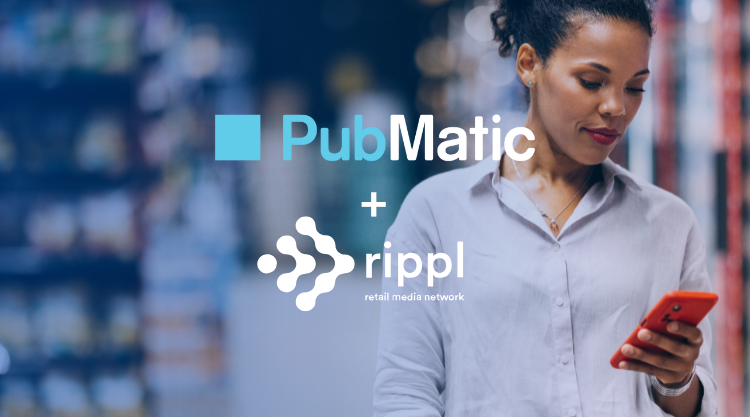As the first day of Advertising Week kicks off here in New York City, announcements are already hitting the web. Of particular note is Adweek’s coverage of Facebook’s new “people-based ad technology” as “marketing nirvana,” driven by the company’s decision to share its deep knowledge of 1.3 billion users in order to power advertising across the web in a way that some marketers are claiming is “unprecedented”—and a shift that some of us in the advertising industry have been keeping a wary eye out for over the past several months.[1]
Back in August, PubMatic CMO Terri Walter encouraged publishers living in the “Age of Facebook” to begin thinking about the data policies and interests of big “media” and “technology” companies like Facebook and Google in a piece in AdExchanger:
“Instead of using content like long-form articles and reportage, recipes and how-to guides to build consumer relationships, these companies use Internet-based services to rapidly grow consumer relationships. But at the end of the day, their business models are as dependent on the buying and selling of advertising as they are on their technology. They’ve entered the publishing game head-on and they’re playing to win.
“To understand this process, look at one of its key drivers: Facebook. The company’s recent earnings report speaks for itself, but just how did it become an emerging advertising juggernaut? Earlier this summer, the social network announced that it will incorporate the anonymous browsing data that it collects on its 1.28 billion users around the globe into its ad-targeting system. This is the advertising system that generated $7 billion in revenue last year, growing 70% year over year in the first quarter of 2014.
“This looks promising and sounds like a great strategy until you pause to consider where all of this tremendously lucrative anonymous browsing data comes from. I won’t keep you guessing: It comes from the very same publishers who lost $7 billion in advertising revenue last year to Facebook.”
And it sounds like publishers have been listening. Last week, the Wall Street Journal published a piece about some of the websites that are becoming wary of Facebook’s tracking software. According to the article, online retailers and publishers like Krux Digital Inc. and Blinds.com are pushing back against Facebook’s effort to track users across the Internet, “fearing that the data it vacuums up to target ads will give the social network too much of an edge.”[2]
As recently as yesterday, Re/code picked up the story with a focus on the ways in which Facebook will use its data to sell ads on non-Facebook websites. According to the article, what may be at stake here is data, not advertising dollars. As Peter Kafka points out, “If Facebook can convince more publishers to let it into their ad business, it’s ultimately going to glean information that will make its own ads, on its own properties, much more powerful.”[3]
“[Search giants use] this data to build user profiles and sell enhanced inventory, competing directly with publishers for digital ad budgets. And here’s the truly incredible part: Publishers seem to be doing very little about any of this. You don’t see anyone removing those Facebook buttons from their sites or choosing to shut out Google.
“Nor do you see anyone raising the question of whether a third party, like Facebook or Google in this context, should profit from data collected on a first-party publisher site without first garnering permission from the publisher. Even media companies that are suing Google in one arena still choose to give their data to Google for advertising. Take the curious example of Yelp, which famously assisted the FTC in an antitrust lawsuit against Google several years ago and is actively engaged in a similar activity in Europe now. Yet by my own estimate, Yelp is one of Google AdX’s largest local advertising partners, turning over inventory and user data to help Google build richer profiles of Internet users that then compete for advertising dollars away from Yelp. And the dance goes on.
“Sadly, none of this is exactly the publishers’ fault. Most of them, even the very big ones, are trying to be as smart as they can, and reckon that there’s little they can do to counter the tech heavyweights’ iron grip on their landscape. But resistance is not futile: Just as Meredith would never dream of turning its audience data over to Condé Nast or NBC sharing its info with Fox, we would do very well if more publishers took notice and realized that tech companies are using their technological advantage to push forward their own media businesses at the expense of their partners.”
As Facebook starts testing its new “people-based” solution, which is said to have audience-based cross-screen measurement, it will surely be a strong foot forward for advertisers who are looking to better attribute cross-screen behavior. However, one has to question what the impact will be on publishers over the long run and what can be done to ensure that the data Facebook is leveraging does more than benefit Facebook’s interests.
[1] Sloane, Garett. “Facebook’s New People-Based Ad Technology Is ‘Marketing Nirvana’.” Adweek. 29 Sep. 2014. http://www.adweek.com/news/technology/facebooks-new-people-based-ad-technology-marketing-nirvana-160438
[2] Albergotti, Reed. “Websites Are Wary of Facebook Tracking Software.” The Wall Street Journal. 23 Sep. 2014. http://online.wsj.com/articles/websites-are-wary-of-facebook-tracking-software-1411513056
[3] Kafka, Peter. “Facebook Will Use Facebook Data to Sell Ads on Sites That Aren’t Facebook.” 28 Sep. 2014. http://recode.net/2014/09/28/facebook-will-facebook-data-to-sell-ads-on-sites-that-arent-facebook




